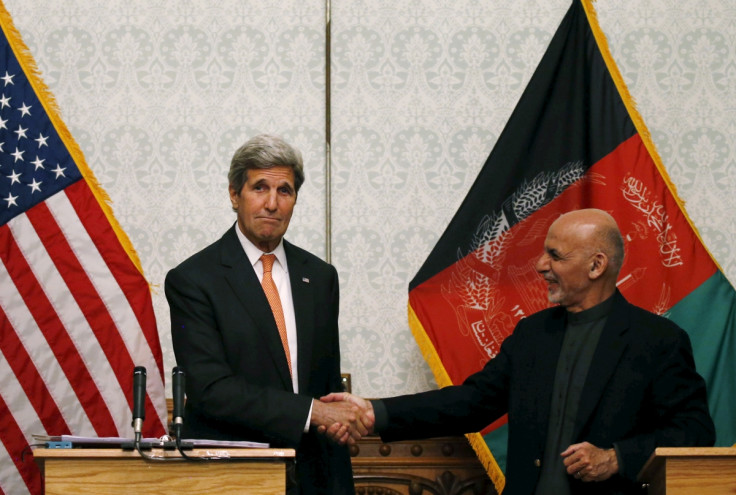Blasts rock Afghan capital Kabul shortly after John Kerry's surprise visit

At least two explosions rocked the Afghan capital Kabul shortly after US Secretary of State John Kerry made an unannounced visit. The American diplomat was in the war-torn nation in a show of support for the unity government.
The blasts were caused by rockets, shot inside the diplomatic zone of Kabul soon after Kerry's news conference ended. This was Kerry's second unscheduled visit in just two days. Earlier, he visited Iraq.
Kerry held meetings with Afghan President Ashraf Ghani and Chief Executive Abdullah Abdullah. Throwing the weight of the US behind the unity government, Kerry told reporters in Kabul: "Let me make this very, very clear because I brokered the agreement: there is no end to this agreement at the end of two years, or in six months from now. There is no end to this agreement at the end of two years or in six months from now." Kerry played a key role in working out an amicable deal between the two Afghan leaders in forming the administration soon after the elections.
His visit has also come at a time when the weakening Afghan government – already riddled with infighting – is struggling to deal with the increasing Islamist insurgency mounted by Taliban and other extremist groups. The rival faction led by Abdullah has been accused of hampering the government's progress for the past 18 months.
"Democracy requires credible institutions. Even more than that, it requires a willingness of people from different political and ethnic and geographic factions to be able to come together and work for a common good," said Kerry as he addressed the joint press conference with Ghani. Nato estimates the Afghan government controls no more than 70% of the country.
Ghani, on his part, thanked the US and international powers for the support saying global funds have been well-spent on re-building efforts. The Afghan president said: "Partners listen to each other and partners do not interfere in the internal processes. We trust that they are doing what will always be constructive."
© Copyright IBTimes 2025. All rights reserved.






















